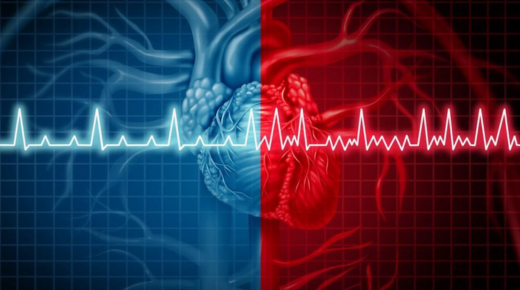Understanding Dehydration
Dehydration occurs when the body loses more fluid than it takes in, leading to an imbalance in electrolytes and impairing normal bodily functions.
Atrial Fibrillation (AFib) Defined
Atrial fibrillation is a common cardiac arrhythmia characterized by irregular heartbeats originating in the atria, leading to rapid and chaotic heart rhythm.
Potential Impact of Dehydration
Dehydration can disrupt the body’s electrolyte balance, affecting the heart’s electrical conduction system and potentially triggering or exacerbating arrhythmias such as AFib.
Electrolyte Imbalance
Electrolytes such as potassium, sodium, and magnesium play crucial roles in regulating heart rhythm. Dehydration can lead to depletion of these electrolytes, increasing the risk of cardiac arrhythmias.
Hemodynamic Changes
Dehydration can cause changes in blood volume and viscosity, leading to alterations in cardiac preload, afterload, and contractility, which may predispose individuals to arrhythmias.
Common Causes of Dehydration
Dehydration can result from inadequate fluid intake, excessive fluid loss due to sweating, vomiting, diarrhea, fever, or diuretic use, and conditions such as diabetes or kidney disease.
Symptoms of Dehydration
Symptoms of dehydration may include thirst, dry mouth, dark urine, fatigue, dizziness, confusion, rapid heartbeat, and decreased urine output.
Risk Factors for AFib
Risk factors for AFib include advanced age, hypertension, coronary artery disease, obesity, diabetes, sleep apnea, and underlying structural heart abnormalities.
Potential Link to AFib
While dehydration alone may not directly cause AFib, it can exacerbate underlying risk factors or trigger physiological changes that contribute to the development or recurrence of AFib.
Clinical Studies
Some studies suggest a potential association between dehydration and AFib, particularly in vulnerable populations such as the elderly or those with existing cardiovascular conditions.
Preventive Strategies
Preventing dehydration through adequate fluid intake, particularly water, and electrolyte replacement during periods of fluid loss or increased risk may help reduce the likelihood of developing AFib.
Hydration Guidelines
Following hydration guidelines, such as consuming at least eight glasses of water per day and increasing fluid intake during physical activity or in hot weather, can help maintain proper hydration status.
Monitoring Fluid Balance
Monitoring fluid balance, including urine output, body weight, and signs of dehydration, can help individuals maintain optimal hydration levels and prevent complications such as AFib.
Treatment Approach
In cases where dehydration is suspected to contribute to AFib, addressing fluid and electrolyte imbalances through oral or intravenous rehydration may be necessary, along with managing underlying cardiac conditions.
Individualized Care
Individualized assessment and management are essential in addressing dehydration and its potential impact on cardiac health, considering factors such as age, medical history, and overall health status.
Educational Efforts
Educating patients about the importance of hydration, recognizing signs of dehydration, and adopting healthy hydration habits can empower individuals to take proactive steps in maintaining their cardiovascular health.
Collaborative Care
Collaboration between healthcare providers, including cardiologists, primary care physicians, and nutritionists, is crucial in addressing dehydration-related concerns and promoting optimal cardiovascular wellness.
Conclusion: Recognizing the Role of Hydration
In conclusion, while dehydration alone may not directly cause atrial fibrillation, it can contribute to electrolyte imbalances, hemodynamic changes, and other physiological disruptions that increase the risk of cardiac arrhythmias. By prioritizing hydration and adopting healthy lifestyle habits, individuals can support their cardiovascular health and potentially reduce the risk of AFib and related complications.




